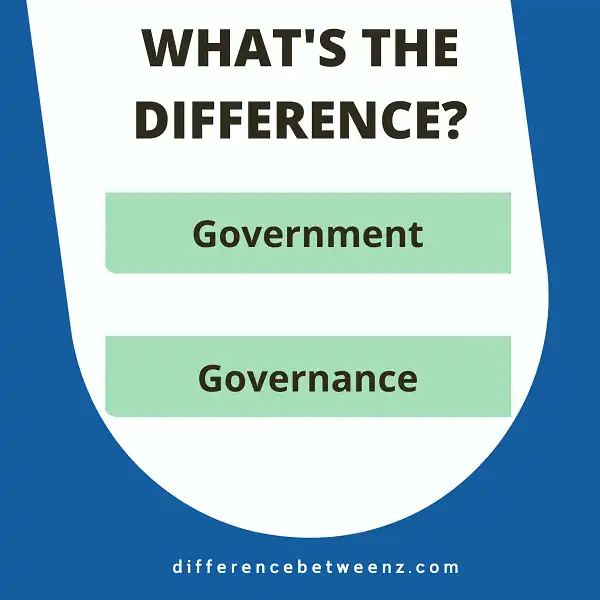Governance is the process of governing, while the government is the institution through which governance is exercised. The difference between government and governance has to do with the scope of authority. The government refers to the institution and its powers, while governance refers to how those powers are exercised in practice. In other words, the government sets out the rules, while governance determines how those rules are carried out. This distinction is important because it helps us to understand how good governance can help to improve economic development and social welfare.
What is Government?
Government is a system of institutions that create, implement, and enforce laws to protect citizens and promote the common good. The main functions of government are to provide public goods and services, redistribute resources, and protect citizens from domestic and foreign threats. The government also plays an important role in the economy by creating an environment that is conducive to business activity. Government institutions can be divided into three main categories: executive, legislative, and judicial. The executive branch is responsible for carrying out the laws of the government, while the legislative branch makes the laws. The judicial branch interprets the laws and adjudicates disputes. The government also exists at different levels, including local, state, and federal. Local governments are responsible for providing services within their jurisdictions, while state and federal governments have more general responsibilities. Government plays a vital role in our society, and we rely on it to keep us safe and promote our well-being.
What is Governance?
Governance is the process of decision-making and the enforcement of those decisions within an organization or institution. It includes the mechanisms through which decisions are made, how power is distributed and allocated, and the procedures by which decisions are executed. Governance is often used interchangeably with government, but it can also refer to the operation of any type of organization, including businesses, charities, and nonprofits. Good governance is essential for ensuring that an organization runs smoothly and efficiently. It helps to ensure that everyone understands the rules and regulations and that decisions are made in a fair and transparent way. Without good governance, organizations can quickly become chaotic and dysfunctional.
Difference between Government and Governance
The government refers to the act of governing, which is the exercise of authority over a group or community. It usually takes place within the framework of a nation-state, and it typically involves the institution of laws and policies that regulate the behavior of citizens. Governance, on the other hand, refers to the process by which decisions are made within an organization or group. It is often used in the context of business or politics, and it generally involves a system of checks and balances that ensures that power is exercised responsibly. While government and governance are both concerned with the management of people and resources, they are distinct concepts that emphasize different aspects of decision-making. Government focuses on the institutions and procedures through which decisions are made, while governance emphasizes the process by which those decisions are reached.
Conclusion
The difference between government and governance is an important distinction to make when studying civics and politics. Government is the institution that wields authority in a state, while governance is the process by which decisions are made and policies are enacted. In theory, good governance should lead to effective government, but this is not always the case in practice. There are many factors that contribute to whether or not a government functions well, including the structure of its institutions, the quality of its leaders, and the level of public engagement. It is up to citizens to hold their governments accountable and demand better governance if they want to see positive change in their communities and countries.


